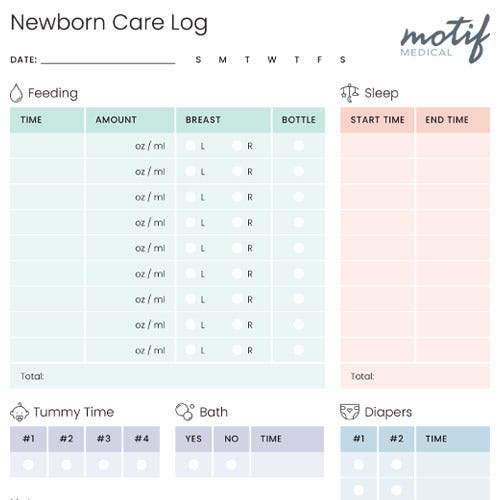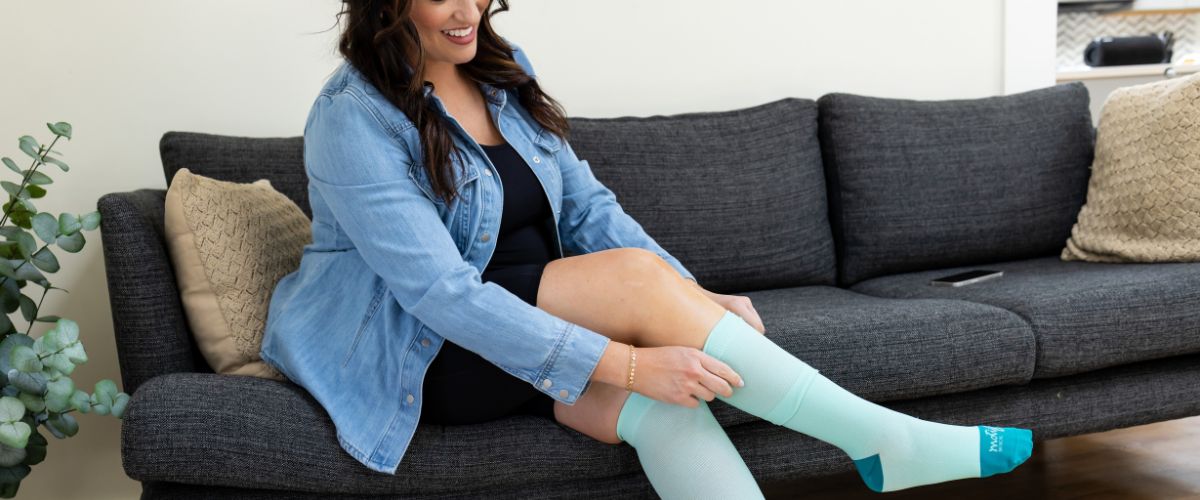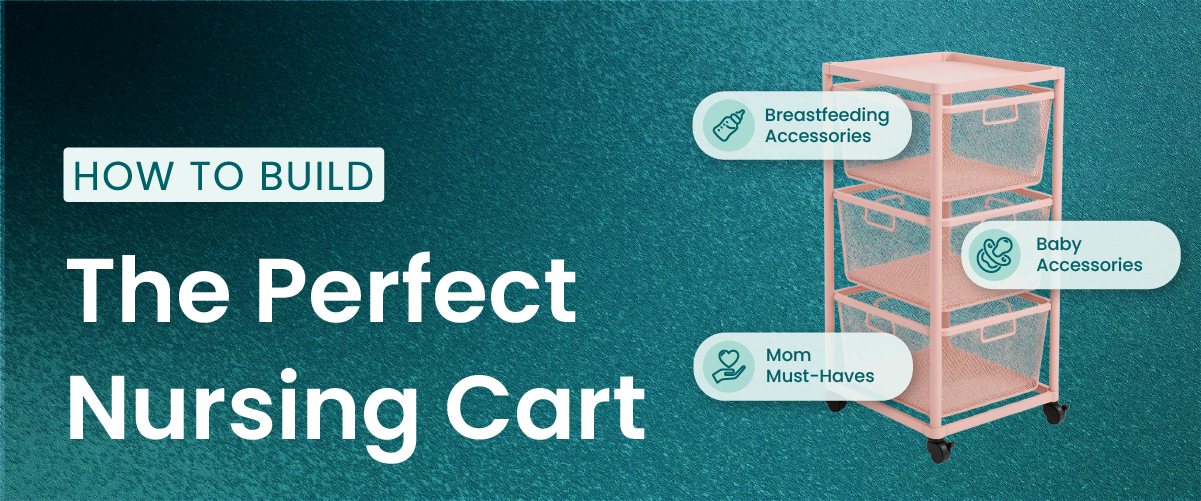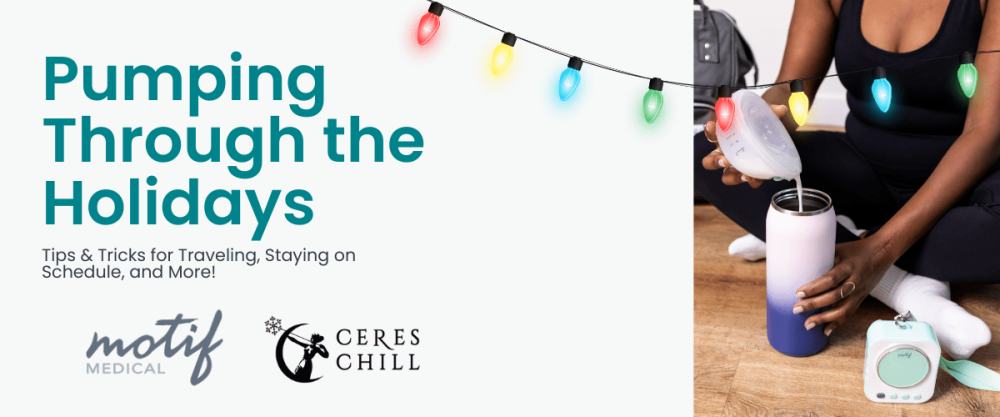Joys of Parenthood
Welcome to the world of parenting: where sleep is minimal, diapers are plentiful, and you probably don’t know the last time you showered! But seriously, even though becoming a parent is the most natural thing in the world, that doesn’t mean the transition happens smoothly. In fact, here’s a little inside tip: most of us always feel like we’re winging it! It’s ok to feel like you don’t know what you’re doing. All parents feel that way from time to time and most of us feel like that at some point every day. Be kind to yourself. As much as you may try to develop a rhythm to your days, to some extent every day is different and you’re going to have to go with the flow. And sometimes the days are so similar that they all start to blur together, too. That’s when having a baby care log can come in handy! Use this template to keep track of your first few weeks with baby and make sure that even as you’re figuring it out, you’ve got all your bases covered.
Sleep
Sleep is definitely a top priority after a baby is born. Not only is it important for your baby to sleep, you need to sleep, too! You and your partner may need to take turns caring for your baby or even call in help from a friend, family, or a postpartum doula, so that you can make sure you’re getting at least one good sleep a day. Your baby is going to eat frequently (see the next section!) so sleep is going to be broken up into something that looks and feels more like napping. That’s ok! It is a temporary season in life and you can do this! Most babies eat every 2 to 3 hours and then after they eat sometimes they’ll have an awake and alert time or sometimes they’ll go right back to sleep.
Every baby is different, but in general your baby will sleep around 16 to 18 hours a day, with sleep cycles that are about 30 to 90 minutes long. It can be hard to remember when everyone slept last, so you can use the tracker to make notes about who slept and when and how long.
Using a tracker can also help you remember any sleep tricks you notice for your baby. Did they like being swaddled? Did they hate it? Did you use a white noise machine? White noise machines are super helpful in apartments! Did you rock them to sleep or did they fall asleep on their own in their crib? It can seem obvious to notice what works in the moment, but the next time you’re trying to get baby to sleep it might be harder to remember what works best!
Developing a bedtime routine can help also help your baby go to sleep. It’s pretty common for babies to be born with their days and their nights flipped around and a nighttime routine can help them adjust to your daily rhythm. Also, a reminder about safe sleep practices: The American Academy of Pediatrics has reported more than 50% reduction in SIDS (Sudden Infant Death Syndrome) as a result of placing babies on their back to sleep.¹
Feeding
Babies eat A LOT! They have a really small stomach and they burn a lot of calories as they transition to life outside of the womb. Your baby will want to eat about 8 to 12 times a day, which is about every 2 to 3 hours. Just like adults, some babies eat really fast and some babies like to savor their meal and eat slowly. Feeding a baby can take 10 minutes or it can take an hour (or more!) Listen to your baby—they will absolutely let you know if they are still hungry.
Whether you are breastfeeding or bottle feeding, you want to make sure that you are feeding your baby at least 8 times a day. With the broken up sleep you’re getting, this is one of the hardest things for new parents to track. If you’re breastfeeding you’ll note which side the baby nursed on and if you’re bottle feeding you’ll want to note how many ounces they ate—all of this is another thing to try and remember. Use the tracker! If you keep this nearby, you can make a quick note whenever your baby eats and then you won’t have to try to keep that information in your brain.


Diapers, Bath, and Tummy Time
Diapers
If you’re doing a great job feeding your baby, your baby will reward you by being great at making dirty diapers! The first several days after birth, your baby’s stools will be the thick, sticky meconium and will gradually transition to regular baby poop. Cleaning meconium off your baby is no joke! You can put coconut oil or olive oil on your baby’s diaper area when you change them to help make it easier to wipe off the meconium at the next diaper change. Some babies poop every time they eat and some only poop two times a day. Make a note on your baby tracker so you can make sure that your baby is voiding regularly.
Poopy diapers are easy to notice and wet diapers are more difficult, especially in the first couple of days. It can be helpful to put a piece of tissue in the diaper to be able to notice if your little one peed or not. Once your milk comes in or once you start bottle feeding, your baby should have at least 6 to 8 wet diapers a day.
Bath
According to the World Health Organization, a baby’s bath should be delayed for 24 hours after birth. When your baby is born they may have white, lotion-like vernix on them and delaying the bath allows their body to absorb this antimicrobial substance. Delaying their first bath also gives baby time to learn how to self-regulate their temperature. Once you start bathing your baby, they only need a bath about once a week. Bathing your baby too often can be harsh on their skin and lead to dry, peeling skin. You won’t want to use anything on baby’s skin that has fragrances or scents--not even essential oils. As much as you can, use natural, organic soaps and if your baby develops cradle cap or eczema, coconut oil is a wonderful, natural treatment option.
Tummy Time
Did you know you can start doing tummy time with your baby right after they are born? Skin-to-skin is the perfect first tummy time session! Being on their stomach helps baby strengthen their neck and shoulders and gain control over their head movements. Only keep your baby in this position for as long as they are comfortable! It might be a really short tummy time session when you first start, but by 3 to 4 months old, your baby should be able to comfortably spend 20 minutes on their stomach.
FREE Newborn Care Log Template
Use this chart to keep track of your daily routine by recording:
- Sleep
- Time baby day and night time sleeps, naps, sleep tips, waking prevention tips, when parents slept, etc.
- Feeding
- Time baby ate, latch sessions (sides baby breastfed), how many ounces pumped, how much was ate in a feeding session, etc.
- Diapers
- wet diapers (urine color) and poopy diapers (consistency, color).
- Bath
- Bathing day tracker, products used (allergy reactions)
- Tummy Time
- How long baby spent on their tummy each day
Sources
1. Moon, Rachel Y. and TASK FORCE ON SUDDEN INFANT DEATH SYNDROME. “SIDS and Other Sleep-Related Infant Deaths: Evidence Base for 2016 Updated Recommendations for a Safe Infant Sleeping Environment.” Pediatrics November 2016, 138 (5) e20162940; DOI: https://doi.org/10.1542/peds.2016-2940.
2. WHO recommendations on postnatal care of the mother and newborn. https://apps.who.int/iris/bitstream/handle/10665/97603/9789241506649_eng.pdf
Information provided in blogs should not be used as a substitute for medical care or consultation.











